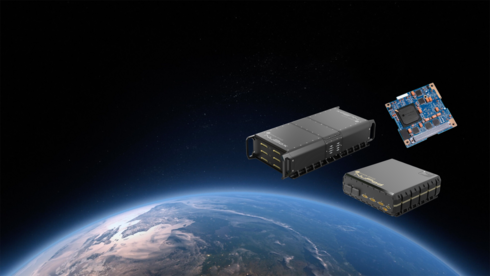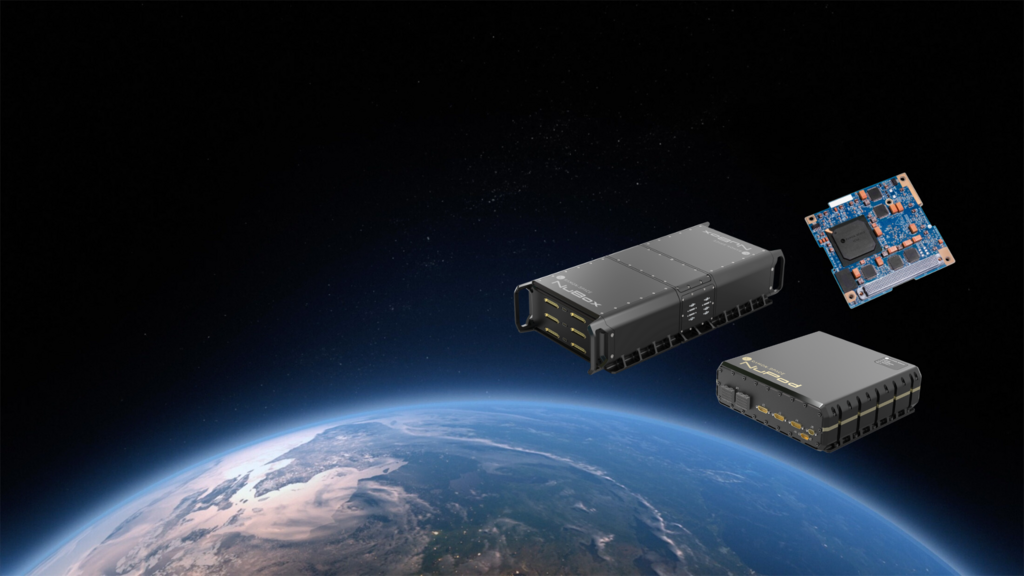
“It will take some time, but I have no doubt that there will be Israeli space unicorns”
While the space sector presents numerous challenges and requires substantial investments, it also offers boundless opportunities for innovation and technological advancement. Israeli entrepreneurs, engineers, and investors are increasingly recognizing the potential
Space has always ignited the imagination of writers, scientists, and anyone who has gazed at the moon and the stars. In recent years, the high-tech industry has also begun to explore the realm of space. The driving force behind this shift was NASA's significant step of entrusting space launches to private entities, particularly Elon Musk's SpaceX, currently the world's most valuable private tech company. Initially, the entry of high-tech into space was largely a competition among giants, with Jeff Bezos and Blue Origin challenging Musk. However, the world gradually realized that private launches could significantly reduce the overall costs of the space industry.
According to Ofer Shoshan, a venture partner at the OurCrowd investment fund, SpaceX's introduction has dramatically lowered the cost of transporting cargo from tens of thousands of dollars per kilogram to just a few thousand, leading to increased demand. Shoshan notes, "There are several companies offering more cost-effective and flexible launch options."
The cost reduction in satellite launches and their accessibility to private companies has spurred many entrepreneurs worldwide to recognize space as a realm not exclusively reserved for NASA but as a place where private industry can thrive, invest, and turn a profit. Renana Ashkenazi, General Partner at Grove Ventures, which invested in the Israeli company Ramon Space, emphasizes, "The interesting aspects of the space sector are mostly in infrastructure-related areas. Not many investors are willing to take on the risks associated with this market, but they are beginning to realize the potential of utilizing satellites for tasks such as monitoring weather, transporting goods, and studying populations. The real opportunities lie in companies that can derive valuable insights from space-based imagery."
Globally, the space industry attracts investments of hundreds of millions of dollars each quarter, despite a noticeable decline since the high-tech industry boom and bubble in 2020 and 2021. In the first quarter of this year, venture capital fund Sphere reports that European space companies raised $565 million, North American companies raised $456 million, Asian space companies raised $306 million, and the rest of the world raised $29 million. In comparison to sectors like cybersecurity, fintech, and even foodtech, the space industry remains relatively small, both globally and in Israel. According to research company SNC, as of the beginning of 2023, approximately $26 million has been invested in Israel, with the majority going to Ramon.Space. However, there may have been additional undisclosed investments in Israel, as companies in this field often prefer to remain confidential until they commence commercial activities or fundraising that requires disclosure.
Israel has a long-standing tradition of investing in space, primarily through organizations like the Israel Space Agency, the Israel Aerospace Industries, and Rafael. Similar to many other technologies, Israel's initial involvement in space was tied to military and security developments. However, in addition to ongoing state support through entities like the Innovation Authority or the Space Agency, private funds and investors are beginning to show interest in the space sector. Most investors believe that Israel has the potential to be a significant player in the field, but unlike its leadership role in the cybersecurity arena, it must carve out its specific niche in the global space industry.
The space sector demands massive capital investments that are not readily available within Israel. Itay Rand, a General Partner at the venture capital fund 10D, explains, "In Israel, there is still a need to figure out how to build and market products to specific consumers, so the focus often shifts back to technological infrastructure, which aligns better with local investors' preferences." Despite the challenges, 10D is highly interested in the space sector, having made a confidential early-stage investment and considering further investments. Rand adds, "We are looking to invest in infrastructure, such as satellite launches and radiation-insulated clothing production. Companies in the space sector require more time for technological maturation. We are still some way from full commercialization and regular sales, and it will be a while before we see significant sales in this field."
One of the notable private investors in this sector is Fred Simon, one of the founders of JFrog. Simon recognized the potential of the space industry after SpaceX's emergence and said, "The Jfrog IPO allowed me to fulfill a dream - to be part of this exciting journey into space and invest in space technologies developed here. I believe the future of our planet depends on it. The space race is driving development and engineering to the limits, enabling us to utilize some of these technologies to combat climate change, reduce electronic waste, and more. Every new industry needs early-stage investors who believe in the dream alongside entrepreneurs. Nowadays, many investors are ready to invest in this industry, understanding that quick returns are unlikely. It will take some time before we see billion-dollar companies in the Israeli space sector, but I have no doubt that there will be unicorns here. Israel boasts sharp entrepreneurial minds, excellent engineering capabilities in both hardware and software, and a wealth of vision. It's crucial to recognize that today, everything is interconnected. The source of most problems and solutions lies in software. Software manages everything, from robots on space stations to satellites. It's the difference between success and failure. We witnessed this in the Genesis 1 launch that failed to land on the moon. Enhanced and higher-quality software could have prevented certain issues."
Fred Simon has invested in companies like Lulav Space, founded by Noam Leiter, an engineer who previously worked on the Genesis 1 project. Leiter explains, "The Genesis 1 crash prompted me to think about how to do things better, especially in developing spacecraft navigation systems. That's when we embarked on this journey. We developed a simulation system that allows us to test moon landings and space maneuvers, considering the constraints of space travel, where we can't afford errors. In space, we must get it right the first time. The simulation system has accelerated our progress significantly. Our space-related product could potentially find a market in 5-10 years, so we're also exploring a broader market for quality testing in robotics."
While the space sector presents numerous challenges and requires substantial investments, it also offers boundless opportunities for innovation and technological advancement. Israeli entrepreneurs, engineers, and investors are increasingly recognizing the potential of this industry, positioning the country to become a prominent player in the global space arena.














